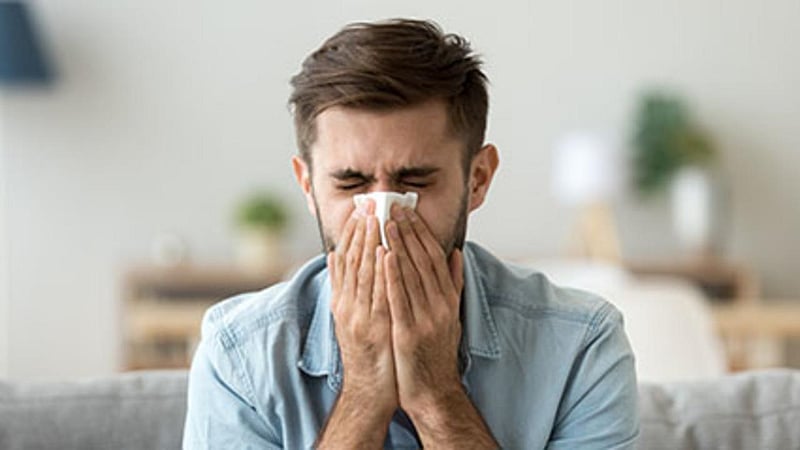Get Healthy!

- Cara Murez
- Posted January 11, 2022
Rain or Shine, Allergies Are Tough. What's the Link to Weather?
If you think frequent changes in weather are triggering your allergy symptoms, you may be right.
A shift from a cold front to a rainy day then back to warm weather can have an impact on those with allergies, said Dr. David Corry, professor of medicine-immunology, allergy and rheumatology at Baylor College of Medicine, in Houston.
"People who have allergies, sinusitis, asthma or any other airway inflammatory disease frequently complain that their symptoms get worse with changes in the weather, and it seems like it's when various fronts come through and there is a big temperature change," Corry said.
Pollen, mold and changes in humidity can all have an impact, Corry explained.
Tree and grass pollen are among the most common environmental allergens for those who have seasonal allergies. Warm and cold fronts can carry pollen in air from other parts of the country, he said.
"When fronts come from the West to the East, they can bring a lot of pollen, particularly in the 'cedar fever' season, which is roughly during mid-January to February," Corry said in a Baylor news release. "Those fronts can bring in that cedar pollen, which is extremely abundant and irritating."
And, when it's wet outside because of rain or thunderstorms, mold can bloom and trigger allergies.
"The main thing that might be bothering people's allergies is mold, which can be in the air at any time of year," Corry said. "It gets worse with major rain or precipitation, especially if a big storm like a hurricane comes through. Cases of severe allergy or asthma can skyrocket."
Some studies suggest that changes in humidity levels might also trigger allergies, possibly because the change can cause the nose to dry out, which can lead to allergic rhinitis (hay fever) symptoms, he noted.
Corry recommends treating allergies by using over-the-counter nasal steroid sprays (like fluticasone [Flonase]) for up to two weeks. A person can also take oral antihistamines (like loratadine [Claritin]), and see a primary care provider or allergist if symptoms aren't relieved.
Figuring out whether your symptoms are due to allergies or COVID-19 is a new issue.
Allergies mainly cause itchy and watery eyes, runny nose, congestion and sneezing. The main differences between allergy and COVID-19 symptoms are a fever, sore throat and itching, such as itchy eyes, nose and ears, Corry said.
Allergies also are unlikely to cause profound tiredness, fatigue, and muscle and joint aches.
"Viruses, including the Omicron variant of COVID-19 and the common cold, can first appear like allergies, but there are certain symptoms that help distinguish the two," Corry said. "You almost never get prominent itching with a virus, and COVID often produces fever, which you never see in allergies. A prominent sore throat also indicates a virus."
More information
The University of Maryland Medical System has more on how to tell allergies from COVID-19.
SOURCE: Baylor College of Medicine, news release, Jan. 5, 2022




